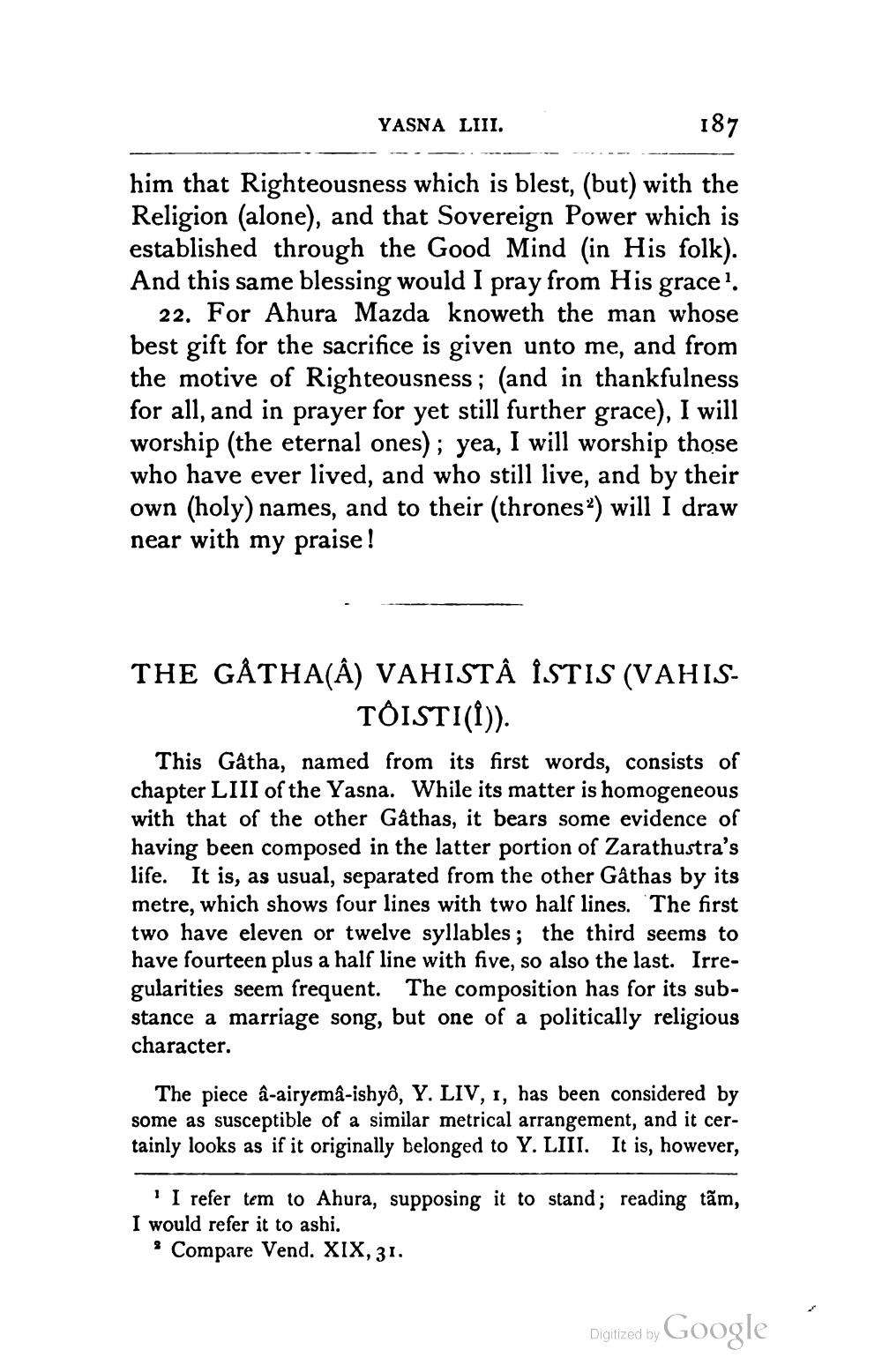________________
YASNA LIII.
187
him that Righteousness which is blest, (but) with the Religion (alone), and that Sovereign Power which is established through the Good Mind (in His folk). And this same blessing would I pray from His grace!.
22. For Ahura Mazda knoweth the man whose best gift for the sacrifice is given unto me, and from the motive of Righteousness; (and in thankfulness for all, and in prayer for yet still further grace), I will worship (the eternal ones); yea, I will worship those who have ever lived, and who still live, and by their own (holy) names, and to their (thrones?) will I draw near with my praise!
THE GÅTHA(A) VAHISTÂ ISTIS (VAHIS
TỎISTI (1)). This Gåtha, named from its first words, consists of chapter LIII of the Yasna. While its matter is homogeneous with that of the other Gåthas, it bears some evidence of having been composed in the latter portion of Zarathustra's life. It is, as usual, separated from the other Gåthas by its metre, which shows four lines with two half lines. The first two have eleven or twelve syllables; the third seems to have fourteen plus a half line with five, so also the last. Irregularities seem frequent. The composition has for its substance a marriage song, but one of a politically religious character.
The piece â-airyemâ-ishyô, Y. LIV, 1, has been considered by some as susceptible of a similar metrical arrangement, and it certainly looks as if it originally belonged to Y. LIII. It is, however,
'I refer tem to Ahura, supposing it to stand; reading tâm, I would refer it to ashi.
* Compare Vend. XIX, 31.
Digitized by
Digitized by Google




